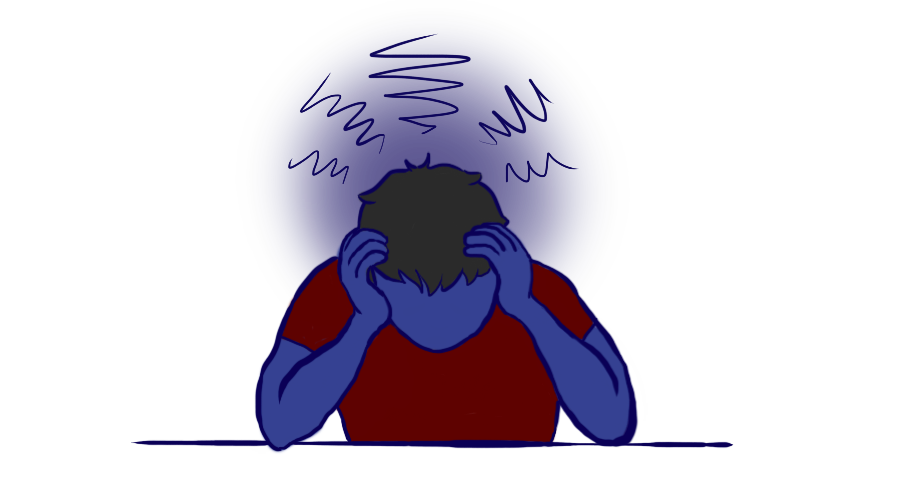Coping with stress
April 21, 2021
For the past 29 years, April has been considered Stress Awareness Month. The purpose of Stress Awareness Month is to raise awareness about the levels of stress that we experience in our daily lives, how that stress is fostered and how we can better cope with it.
In a culture where time equals money and we consider it a virtue to be constantly busy, it’s all too easy to become overwhelmed, and therefore, stressed. As many students probably know, a life filled with constant stressors is not good for the body or the mind.
Cortisol, a hormone that is released in your body when you experience stress, can work to your advantage in some cases. However, if you’re experiencing the chronic stress that American culture perpetuates, then increased levels of cortisol will make you worse off. Frequent, high levels of cortisol can weaken your immune system and cause high blood pressure, for example.
Not only can high levels of cortisol take a toll on your physical health, but it can take a toll on your mental health, too. Chronic stress and high cortisol levels can increase the risk anxiety or depression, or worsen the effects experienced by those who already live with mental illnesses.
Recognizing sources of stress and coping strategies to deal with stress as to avoid its ill effects will always be important. Amid the pandemic, when stressors and worries have been ever-present, this has been especially important.
So, how can you begin to be aware that you’re experiencing high levels of stress? How can you cope with that stress?
Stress can make itself known in your life in both prominent and not so prominent ways. If you’re experiencing increased states of irritability, having trouble with concentrating, sleeping or eating, notice physical symptoms such as headaches or muscle aches and generally lack a consistent amount of energy, then you may be experiencing chronic stress.
A lot of sources recommend coping with stress by developing a consistent exercise routine. This is, of course, a lot easier said than done, especially if you’re not in the best headspace to begin with. It may be difficult to find the motivation or time to fit exercise into your schedule, but dedicating even a small part of your day to that can make a difference.
It has also been recommended that you incorporate meditation into your daily schedule. Being able to silence your mind and be mindful for an hour can, in the long run, benefit you in several ways. Through meditation, you can be more at peace with yourself and your life. However, meditation doesn’t always work for everyone; it can be difficult to silence the mind for some, and that’s okay.
Another thing that seems like an obvious way to relieve stress yet isn’t always put into practice for multiple reasons is the act of talking with others. Whether that person be a friend, a family member, or a therapist, it’s important to discuss what your experiences and emotions are with people that you trust.
































